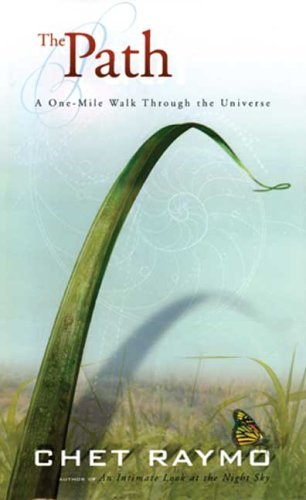We Cannot Return to Nature
This much is certain: The future of the planet wall not be a reprise of the past, a return to "a state of nature." The future will certainly be technological, increasingly globally homogeneous, and, in the short run at least, will embody the connectivity of the computer chip and the contrivances of genetic engineering—in conformity with Chaisson's law of rising complexity. American conservationists frequently offer Native American attitudes toward nature as the solution to our environmental dilemmas, and certainly there is much we can learn from Native A American wisdom, as we can learn from the wisest voices of every tradition. But the precolonial North American "wilderness" was not so pristine as conservationists sometimes imply, nor were the original human inhabitants of the continent so peaceable e in their relationships with the native fauna and with each other. In any case, there's no going back. Whatever unspoiled paradise European colonialists thought they found in the New World has long been erased by human cunning. Within 400 years, the environs of the path have undergone transformations from hunting-gathering to agricultural to industrial to cybernetic, following the curve of rising complexity Many North Easton villagers now make their living in front of a computer screen. They are by and large more prosperous, healthy, and leisured than at any time in the past.
Notes:
Even the America before the Colonists was somewhat domesticated by the Native Americans, and we cannot give up our leisurely lifestyles.
Folksonomies: nature environmentalism recidivism
Taxonomies:
/food and drink/healthy eating (0.379009)
/society (0.378618)
/food and drink (0.257241)
Keywords:
genetic engineering—in conformity (0.910610 (negative:-0.683745)), Native American attitudes (0.874341 (positive:0.668734)), original human inhabitants (0.862772 (neutral:0.000000)), North Easton villagers (0.845885 (negative:-0.387556)), paradise European colonialists (0.834814 (neutral:0.000000)), leisurely lifestyles (0.711349 (negative:-0.588245)), American conservationists (0.682786 (positive:0.668734)), Native Americans (0.647511 (neutral:0.000000)), environmental dilemmas (0.638430 (positive:0.668734)), planet wall (0.629539 (neutral:0.000000)), short run (0.621366 (negative:-0.541939)), wisest voices (0.613330 (positive:0.548603)), human cunning (0.609427 (neutral:0.000000)), native fauna (0.607315 (neutral:0.000000)), American wisdom (0.605838 (positive:0.609254)), New World (0.590664 (neutral:0.000000)), nature (0.469779 (positive:0.545398)), complexity (0.441839 (negative:-0.535650)), future (0.408994 (neutral:0.000000)), past (0.405810 (negative:-0.434619)), contrivances (0.403057 (negative:-0.683745)), Colonists (0.396839 (neutral:0.000000)), reprise (0.392094 (neutral:0.000000)), environs (0.371129 (neutral:0.000000)), return (0.368160 (positive:0.379908)), transformations (0.360805 (neutral:0.000000)), continent (0.360170 (neutral:0.000000)), chip (0.360116 (negative:-0.683745)), connectivity (0.359413 (negative:-0.683745)), curve (0.358811 (negative:-0.387556))
Entities:
Native Americans:FieldTerminology (0.900441 (neutral:0.000000)), North American:FieldTerminology (0.749335 (neutral:0.000000)), America:Continent (0.597354 (neutral:0.000000)), Chaisson:Person (0.584092 (negative:-0.683745)), 400 years:Quantity (0.584092 (neutral:0.000000))
Concepts:
United States (0.954503): website | dbpedia | ciaFactbook | freebase | opencyc | yago
North America (0.842782): geo | dbpedia | freebase | yago
Native Americans in the United States (0.690895): dbpedia | freebase | yago
Indigenous peoples of the Americas (0.652895): dbpedia | freebase | yago
Americas (0.649314): dbpedia | freebase | opencyc | yago
Europe (0.647034): dbpedia | freebase | yago
Maize (0.608964): dbpedia | freebase
California (0.555092): geo | website | dbpedia | freebase | opencyc | yago





